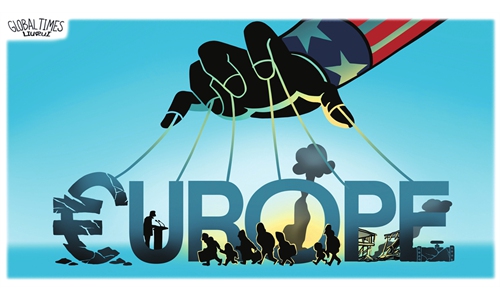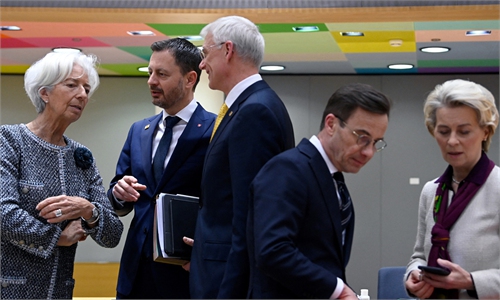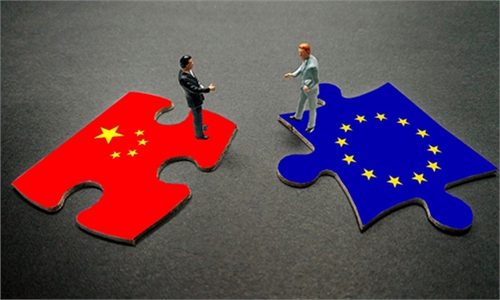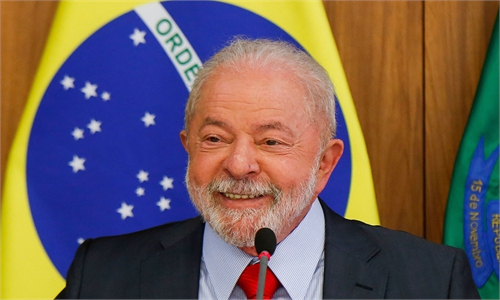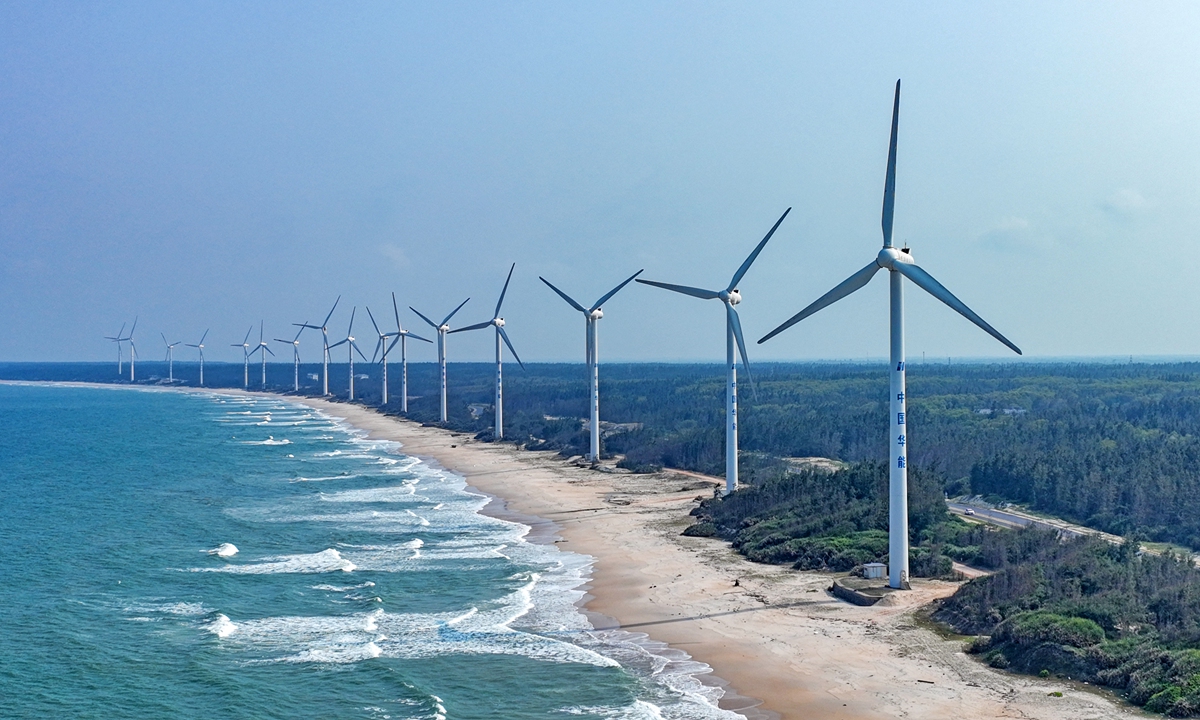
Wind turbines along the coast of Mulan Bay, Wenchang City, in South China's Hainan Province, on February 24, 2023 Photo: VCG
Editor's Note:Industrial modernization and decarbonization of economy are the engines that drive China's high-quality development, Denis Depoux (Depoux), global managing director of Roland Berger, an international management consultancy headquartered in Munich, Germany, told the Global Times (GT) on the sidelines of the 2023 China Development Forum (CDF) in Beijing. The forum, held offline for the first time since the outbreak of the COVID-19 pandemic, highlights that China will embrace the world with open arms. Against the backdrop, an increasing number of reports unveiling EU leaders' planned China trip signals the significance and the determination of Europe to engage with China, Depoux said.
GT: As the first national-level large-scale international forum after the annual two sessions and the first high-level forum after China's adjustment of the epidemic policy, how do you feel about participating in this year's CDF after a three-year gap?
Depoux: I was actually in China during the whole time. I'm one of the few global leaders that actually is located in China, but it's good to be back here (to the CDF). The world is in trouble. And in times of trouble, there is one thing that is always very positive - dialogue and communication. We need more of this. So I think it's very important that right after the two sessions, this dialogue can take place in person with many people coming from overseas, meeting with Chinese leaders, both government leaders and corporate leaders, to exchange and to bring back a common understanding of the situation and the way forward.
GT: Your company has been in China for about 40 years, so in your opinion, what conditions/aspects in China are attractive to entrepreneurs and multinationals in the past and at the present, respectively?
Depoux: I think there is a bit of an old China story, which was based on labor productivity, massive capital availability, and a permissive regulation environment, but that old China story is gone. It's gradually transforming into something new, which is a lot more high quality and high added value.
For me, the new China story has some engines. One engine is industrial modernization - making Chinese manufacturing more productive and increasing its added value, simply because it cannot play the demographic dividend anymore. Labor dividend and demographic dividend will still be there for a while, but it will not be there forever. It's a matter of a decade before the Chinese population starts to age at a point where it's going to have an impact on the working population. So industrial modernization is one of the new engines.
The fight against climate change and decarbonization of the Chinese economy is a second engine. If China wants to remain competitive as the factory of the world, it needs to be a green factory of the world. We had a debate in one of the sessions of CDF, on the EU Carbon Border Adjustment Mechanism, which will simply tax any products that are heavily loaded in CO2.
A lot of Chinese companies that are clients of Roland Berger, are calling for help to support in decarbonizing their production.
China has a very ambitious objective to reach a peak in its carbon emissions before 2030 and achieve carbon neutrality by 2060. But we are only at the beginning. The share of renewable electricity and the Chinese energy mix is already big as China is building more solar PV and wind power than anywhere in the world. And its installed capacity is about 400 gigawatts of each solar and wind power. It dwarfs everywhere else in the world. One third of electricity consumption [will] come from renewables. That's big. That's on the same level like Germany or South Korea. It's a competition.
It's only the beginning. It's difficult, but it's the same as elsewhere. That's not specific to China. When you produce steel, you generate a lot of CO2. But that will change over time. China as a big steel producer, will have to change over time.
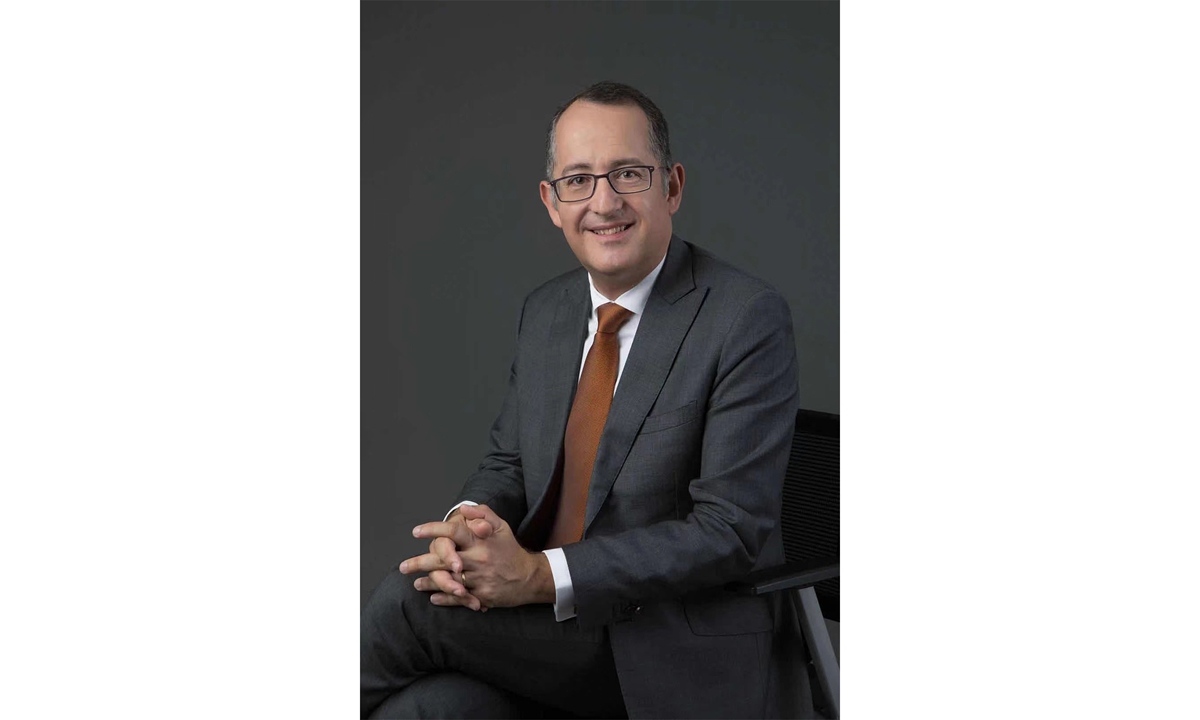
Denis Depoux Photo: Courtesy of Depoux
GT: China sets GDP target of around 5 percent for 2023. What's your take on the figure?Depoux: I will repeat what I heard during the CDF, which I like very much - this is a prudent objective. It's a prudent approach, which reflects realism in the uncertainty and the volatility impacting economic decision making this year. It also means that policy will have to be flexibly adapted during the year depending on what's happening.
Not setting a too high objective helps avoid creating bubbles or speculative movements that would be detrimental to a soft but steady recovery.
I think the figure does not matter. What matters is the high quality growth - the added value, making progress in productivity, because productivity will increase the wealth of China.
GDP is an indicator, but the GDP per capita in Shanghai or in Beijing or in Shandong is two or threefold the GDP per capita of Gansu, or Sichuan. So the figure is not critical. What is critical is rather how much transformation of the Chinese economy is happening in the direction of higher productivity, a lot more innovation, a lot more consumption drive, which needs structural reform to make it happen.
GT: Do you think geopolitics has affected other countries when it comes to investing in China?
Depoux: I think it's a combination of economic uncertainty, geopolitical tensions. It's also affected by trying to anticipate different scenarios going forward and measuring the consequences of these scenarios. That is difficult because nobody knows what political leaders can decide and what consequences it can have on economic exchanges.
I would say business doesn't like politics. Politicization of business is never a good thing. But it's not in the hands of business. Therefore, business leaders have to bear the consequences of whatever is decided by political leaders. And because there is uncertainty in decision making, business leaders are cautious.
A business environment can be good and can be bad. In both cases, business leaders know what to do. If it's good, you invest more. If it's bad, you cut costs, optimize, and restructure.
What is very difficult to manage is when you don't know where you are and what will happen next, then you simply don't make decision.
GT: Do you think European countries are in a difficult position amid tensions between China and the US?
Depoux: European business was thriving in China and had been particularly good in 2021 but suffered in 2022, because the economy was up and down quarter after quarter. That created a lot of pressure. The tensions with the US added to this pressure because they created an additional threat of technology, restrictions, bans and difficulties to do business.
Most of these European companies are also doing business in the US. So they are very cautious. What can happen next? The threats sometimes don't have immediate consequence but it slows down decision making, because it adds more uncertainty.
GT: How do you view the current China-EU relations and its prospects?
Depoux: I think the EU is always trying to have a relatively rational approach to its relations with the other blocs. The EU is not short of its economic sovereignty objective, and it has been reinforced again since the COVID crisis. It is simply because that's the best way for European countries and European companies, to be protected from geopolitical tensions.
What I can expect or what I see is that there is pretty strong dialogue between China and the EU. We've seen the chancellor of Germany going to China. Soon the French President will visit China. These are very strong signals that Europe is engaging with China. The European Commission will also be represented one way or the other in the upcoming visits. So the EU is engaging with China, is putting things on the table and solving them in a transparent way to avoid being trapped in someone else's discussion.
There is a very positive signal that European Commission President Ursula von der Leyen will travel together with French President Emmanuel Macron during his trip to China.
It is a signal of trying to recreate a very predictable and transparent environment for trade and investment not only between China and France, but also between China and the EU. The EU is one economic bloc. One country in Europe cannot decide on behalf of the others or cannot decide some things that would be contradictory to the EU treaties. So it's very important that when China engages with one country in Europe, it also engages with the whole bloc.
I think we're back to those times when Macron, Merkel and previous EU leaders visited China. It is a good thing that shows quite some progress made between Europe and China. It also signals the significance and the determination of Europe to engage with China.
